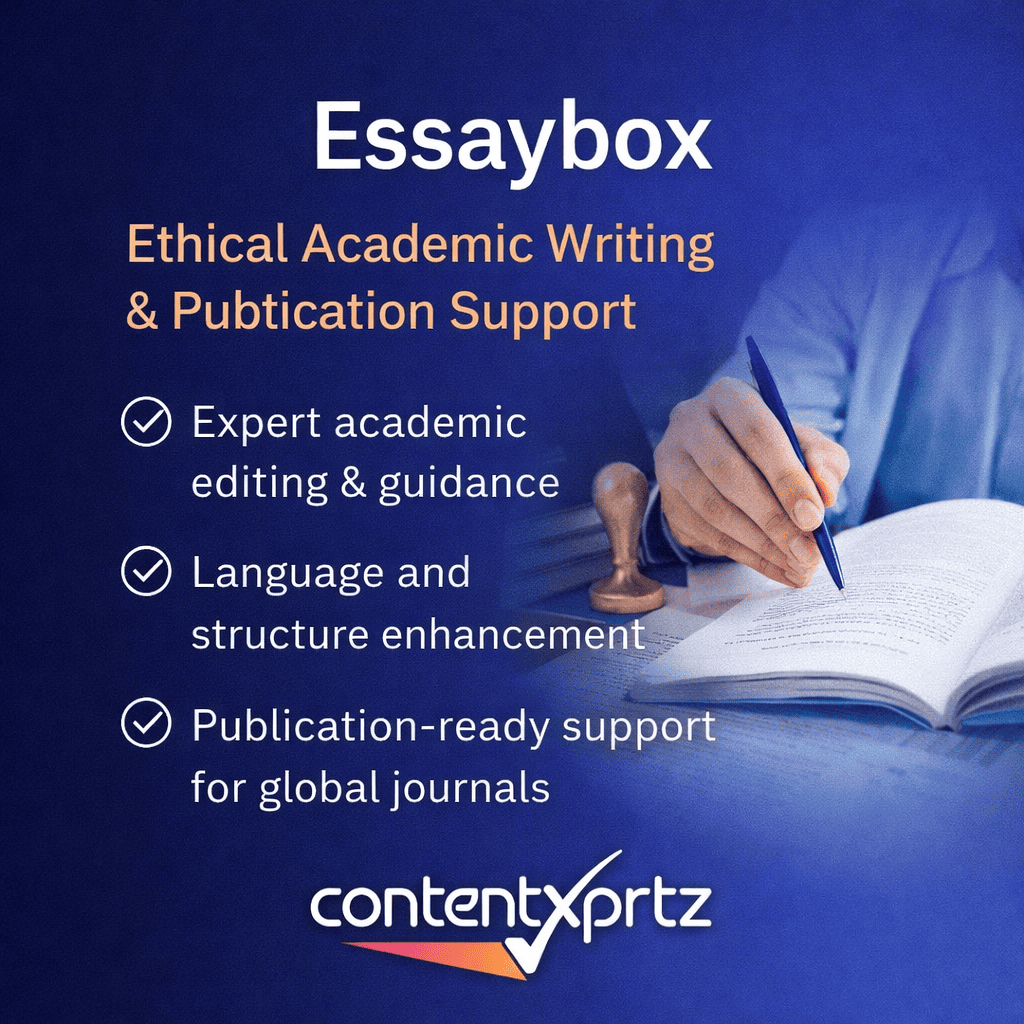A Good Thesis Statement: How to Write with Clarity, Confidence, and Academic Authority
For every PhD scholar or research student, writing a good thesis statement is more than an academic requirement — it’s the intellectual cornerstone of their entire study. A well-crafted thesis statement gives direction, coherence, and credibility to a paper. Yet, it remains one of the most challenging aspects of academic writing.
In today’s hypercompetitive research environment, global PhD candidates are under immense pressure. Studies published in Elsevier’s Research Evaluation Journal indicate that global PhD completion rates have declined by over 15% in the past decade due to burnout, unclear research direction, and publication pressure. Meanwhile, journal acceptance rates hover around 10–20%, meaning even excellent studies can struggle to find their place without a focused, compelling thesis foundation.
Add to this the burden of rising costs, tight deadlines, and the demand for originality, and it’s easy to understand why so many scholars turn to academic editing services and PhD thesis help to refine their research narratives.
At ContentXprtz, we’ve worked with researchers from over 110 countries since 2010 — helping them transform rough drafts into publication-ready manuscripts. One lesson stands clear across disciplines: success begins with a good thesis statement — a single, clear sentence that anchors an entire academic journey.
What Is a Good Thesis Statement?
A good thesis statement is not just a summary of your topic; it’s the central claim that defines your argument and research direction. It tells readers what your paper is about, why it matters, and how you’ll support it.
In simple terms, it serves three critical functions:
- Defines the purpose – Clarifies what your paper seeks to achieve.
- Narrows the focus – Keeps your research concise and manageable.
- Creates coherence – Guides your writing to stay aligned with your argument.
According to Springer’s Handbook of Academic Writing, a well-structured thesis statement enhances comprehension and citation potential because it signals clarity and confidence to peer reviewers.
Why a Good Thesis Statement Matters in Academic Writing
Every great research paper begins with a single idea. Without a thesis statement, even strong data lacks direction. A poor or missing thesis often leads to fragmented arguments and lower publication chances.
In academic writing, clarity equals credibility. Journals indexed in Emerald Insight emphasize that research papers with clear argument structures and concise thesis statements receive higher reviewer ratings on readability and contribution to knowledge.
When your thesis statement is effective, it:
- Captures the essence of your research question.
- Engages readers by promising intellectual depth.
- Enhances citation rates by signaling conceptual precision.
Characteristics of a Good Thesis Statement
1. Clarity
Avoid vague or overly broad statements. For instance:
❌ “Technology impacts education.”
✅ “Adaptive learning technologies improve personalized student outcomes by aligning content with cognitive data patterns.”
2. Specificity
Your thesis must answer the “what” and “why” with precision.
3. Originality
It should contribute something new — a perspective, model, or theoretical connection.
4. Arguability
A thesis is not a fact; it’s an argument. It should invite debate, not merely state the obvious.
5. Conciseness
Most academic guidelines suggest keeping it under 40 words without diluting meaning.
Steps to Craft a Good Thesis Statement
Step 1: Start with a Research Question
Every strong thesis begins with a compelling question, e.g.,
“How does leadership style influence organizational agility?”
Step 2: Conduct Preliminary Research
Consult peer-reviewed journals (Taylor & Francis Online) to ensure your perspective fills a gap.
Step 3: Formulate a Tentative Answer
Turn your question into a clear claim.
Example: “Transformational leadership enhances organizational agility by fostering adaptive learning and dynamic capabilities.”
Step 4: Refine Through Peer Feedback
Academic editing professionals can help you align your statement with disciplinary expectations.
Step 5: Validate with Logic
Ensure every chapter or section of your dissertation logically connects back to your thesis statement.
Examples of Good Thesis Statements Across Disciplines
| Discipline | Example Thesis Statement |
|---|---|
| Psychology | “Mindfulness-based interventions reduce academic burnout among postgraduate students by improving emotional regulation.” |
| Management | “Adaptive leadership enhances team innovation through dynamic capability building.” |
| Literature | “Postcolonial narratives reinterpret identity through the lens of cultural hybridity.” |
| Technology | “AI-driven simulations can personalize STEM education and improve learning outcomes.” |
| Sociology | “Urban inequality persists due to structural policy inertia rather than individual economic behavior.” |
Common Mistakes to Avoid
- Writing too broad or descriptive statements.
- Using passive or uncertain language (“might,” “could”).
- Including multiple unrelated ideas in one sentence.
- Forgetting to align with research objectives or methodology.
At ContentXprtz, our PhD & Academic Services (link) ensure every thesis statement passes clarity, logic, and originality checks.
How Editing and Proofreading Improve a Thesis Statement
Even well-written theses benefit from professional refinement. Editors can:
- Eliminate redundancy and ambiguity.
- Strengthen argument structure.
- Ensure alignment with journal submission guidelines.
- Enhance readability for global publication standards.
Our academic editing services (link) help scholars elevate their writing from competent to publication-ready.
The Role of a Good Thesis Statement in Publication Success
A precise, arguable thesis directly influences peer-review outcomes. According to Elsevier’s Journal Insights, clarity in problem statement and research scope are among the top three factors determining acceptance.
Your thesis statement forms the first impression reviewers and editors get — it determines whether they see novelty, coherence, and academic depth.
At ContentXprtz, our research paper writing support (link) ensures your statement aligns with international standards.
FAQs: Mastering the Art of a Good Thesis Statement
1. Why is a good thesis statement so important in a dissertation?
A good thesis statement serves as the foundation of your argument. Without it, your research lacks direction and coherence. Reviewers often reject papers that appear conceptually unfocused. In academic terms, the thesis acts as both your compass and your credibility indicator.
2. How long should a good thesis statement be?
Ideally, it should be one to two sentences or under 40 words. Concise statements reflect clarity of thought — a key trait reviewers value. As APA Publication Manual (7th ed.) notes, brevity enhances comprehension and readability.
3. Can my thesis statement evolve during research?
Absolutely. Many scholars refine their thesis as findings emerge. Iterative refinement demonstrates intellectual maturity — a hallmark of good research practice.
4. What are the most common pitfalls to avoid?
Avoid generalizations (“technology affects society”), weak verbs (“is,” “are”), and ambiguity. Every strong thesis contains a clear stance supported by evidence.
5. How can I test if my thesis statement is strong?
Ask:
- Can someone disagree with it?
- Does it align with your methodology?
- Can it be proven with data or argumentation?
If yes, it’s strong.
6. Should my thesis statement appear in the introduction only?
It should appear early, ideally in the introduction, but its influence should resonate throughout your dissertation — guiding argumentation and structure.
7. How does a good thesis statement differ from a hypothesis?
A hypothesis is a testable proposition; a thesis statement is your interpretive claim or argument. The former predicts; the latter persuades.
8. Can I use AI tools to draft a thesis statement?
AI tools can assist brainstorming, but ethical writing requires human judgment and academic integrity. Always validate AI-generated suggestions with peer-reviewed literature.
9. How do professional editing services improve my thesis statement?
Professional editors ensure your thesis statement meets disciplinary expectations, maintains logical flow, and avoids common stylistic issues that reduce publication quality. At ContentXprtz, our experts blend subject knowledge with linguistic precision.
10. How can ContentXprtz help me write a good thesis statement?
With over a decade of experience, ContentXprtz supports researchers through every stage of academic writing — from conceptualization to publication. Our services include:
- Thesis editing and proofreading.
- Journal submission assistance.
- Research design consultation.
- Publication guidance with top-tier journals.
Explore our PhD & Academic Services and Corporate Writing Services for personalized support.
Final Thoughts: Writing with Purpose and Precision
Crafting a good thesis statement isn’t merely a writing exercise — it’s the process of defining your intellectual identity as a researcher. When written effectively, it captures your argument, discipline, and contribution in a single line.
If you’re struggling to refine your thesis, you’re not alone. Scholars worldwide face similar challenges — balancing originality, clarity, and publication standards. That’s where ContentXprtz becomes your trusted academic partner.
We offer comprehensive editing, proofreading, and publication assistance across disciplines, empowering scholars to publish confidently and ethically.
At ContentXprtz, we don’t just edit — we help your ideas reach their fullest potential.
Outbound References
- Elsevier Research Evaluation Journal
- Springer Handbook of Academic Writing
- Emerald Insight – Author Resources
- Taylor & Francis Online – Writing Support
- APA Style 7th Edition
✅ Internal Links Used

